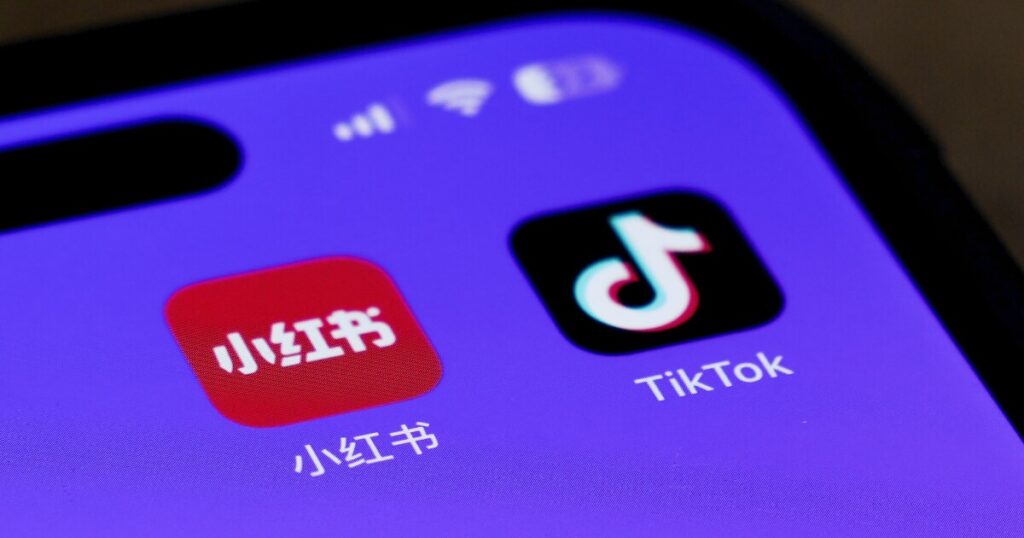As the TikTok ban looms on the horizon, many Americans, including those in North Carolina, are turning to alternative social media platforms. One such app, Xiaohongshu, known as RedNote in English, is capturing the interest of those seeking a new digital home.
RedNote, often compared to a video-centric Pinterest, offers categories ranging from travel to fashion. Recently, it surged to the top of Apple’s and Google’s free app charts, fueled by a social media movement among “TikTok refugees,” who are flocking to the platform as a possible remedy to the impending ban.
This surge in popularity aligns with the sentiments expressed by Robyn Caplan, a technology policy expert at Duke University. Caplan notes, “It’s not hard to see, because people are being very explicit about it, about Americans in particular and their distrust of U.S. tech companies.”
With the Supreme Court’s recent decision to uphold the TikTok ban, the app’s fate now hinges on ByteDance, its parent company, either selling the app or facing its removal from the U.S. market. This uncertainty has driven individuals like Cary resident Amira Tremelling to explore RedNote. Tremelling reflects on the irony of the situation, stating, “I think it’s interesting too, because the U.S. government is trying to get rid of Tiktok because they’re saying it’s Chinese-owned, even though the CEO is Singaporean. And instead, they just got all of the Americans on an actual Chinese social media app, and then everyone’s learning a new language.”
Traditionally, RedNote has catered to a Chinese demographic. However, Caplan observes that the influx of American users has created a “very interesting space” where cultural exchange is thriving. She notes, “There’s kind of a marrying of Chinese and American culture right now, where you have English subtitles combined with Mandarin subtitles, and there’s some other really interesting cultural exchange happening around explaining Internet slang and emojis and things like that.”
Amid this cultural blending, Tremelling has noticed interactions where Chinese users seek English language assistance in the app’s comment sections. Despite these positive exchanges, RedNote could face scrutiny if it follows TikTok’s path, potentially becoming the next app scrutinized under U.S. regulatory frameworks.
Caplan points out that the TikTok ban stems from concerns about data access by the Chinese Communist Party, though she questions the validity of these fears. “There’s been some very minimal examples of access to data that, from my experience as a scholar who studies tech platforms, is not out of step or out of the norm for access by any platforms to user data,” Caplan explains. “Most of the data that you can get through TikTok, that is acquired through TikTok is also acquired by every other social media platform.”
As the deadline approaches, ByteDance’s options are limited, with the possibility of selling TikTok being the only apparent escape from the ban. Yet, there’s uncertainty about future policies under the incoming administration, with President-elect Trump’s stance remaining unclear, despite his recent remarks.
Tremelling, a dedicated TikTok user, remains skeptical about the app being acquired by an American company, citing potential censorship concerns. “I think it might be, like, heavily censored in some aspects,” she remarks. “I think it’s fun to have (social media) all not owned by the same person, the same company.” For now, she intends to continue using TikTok, valuing its personalized content until it is no longer available.





